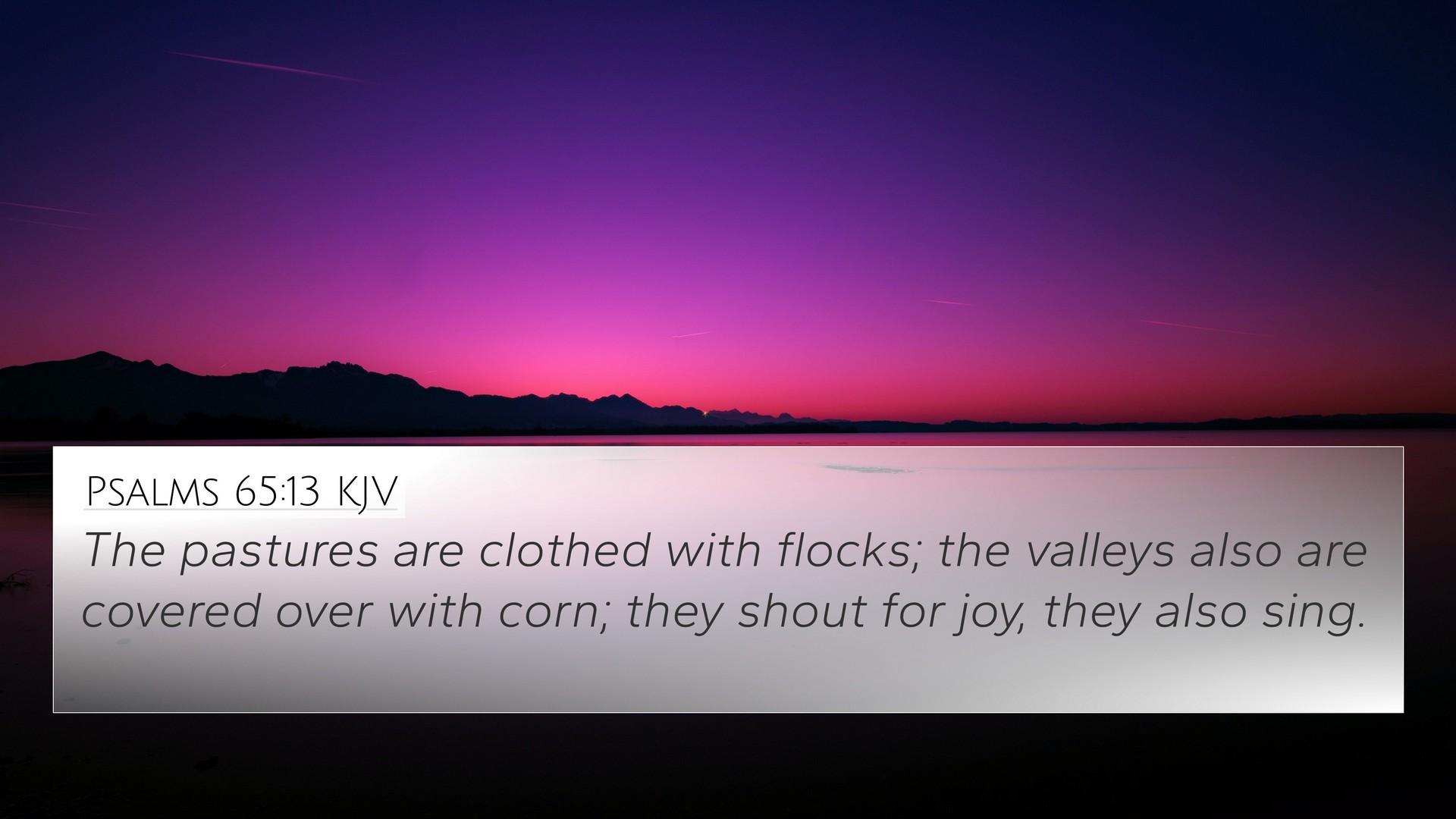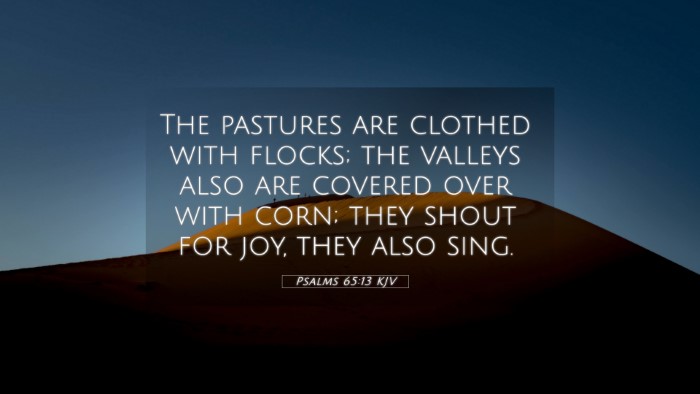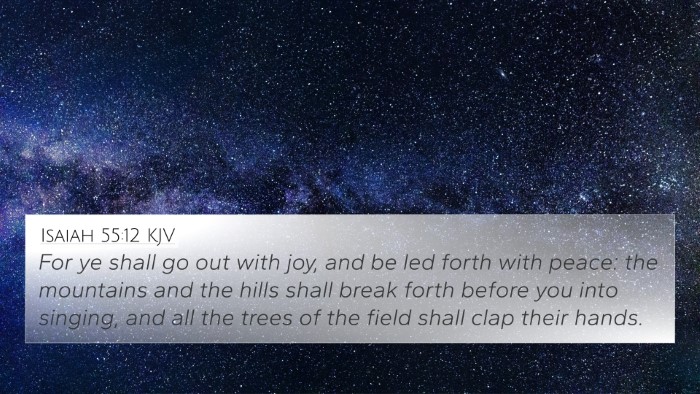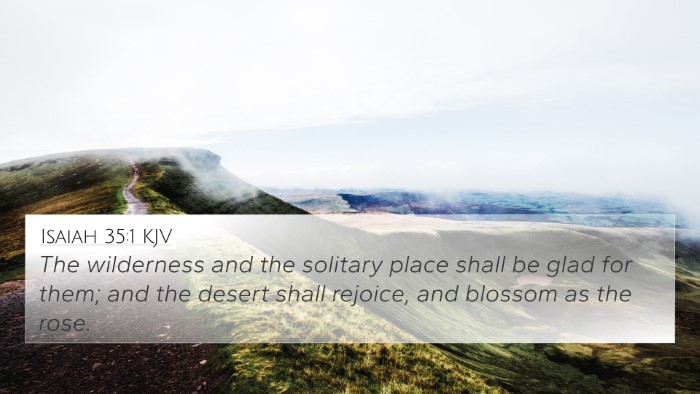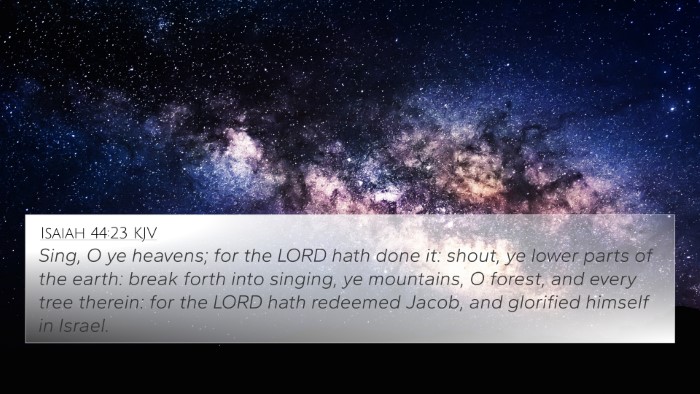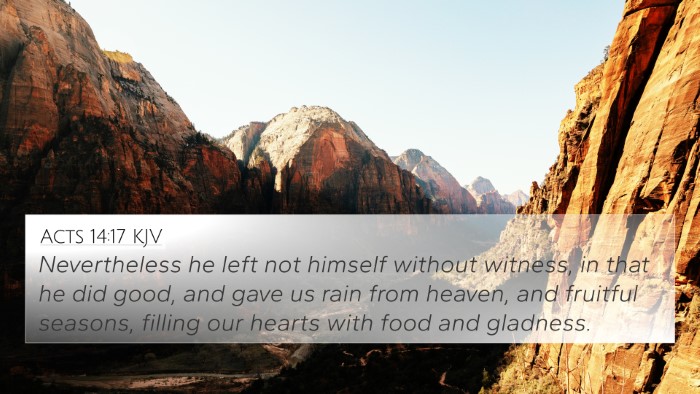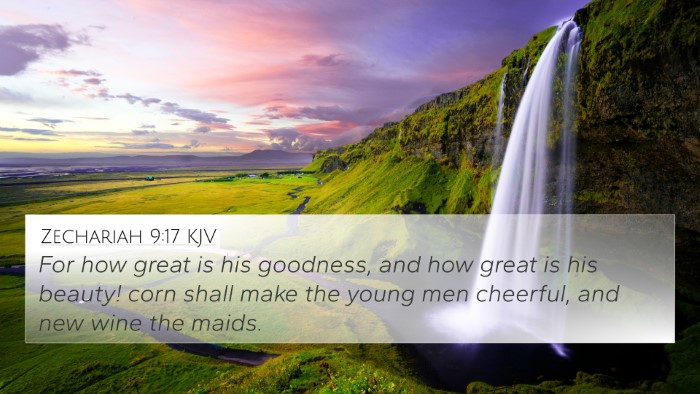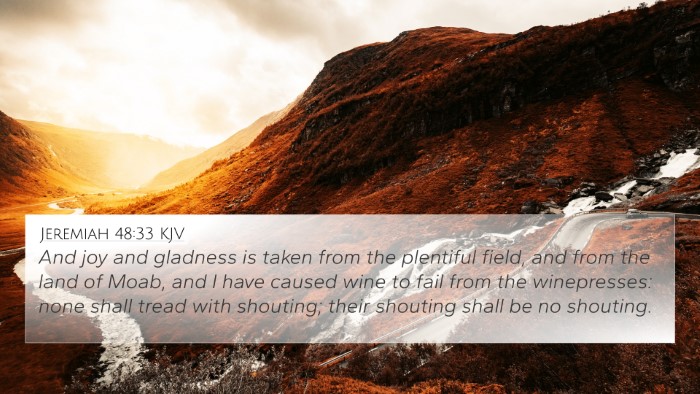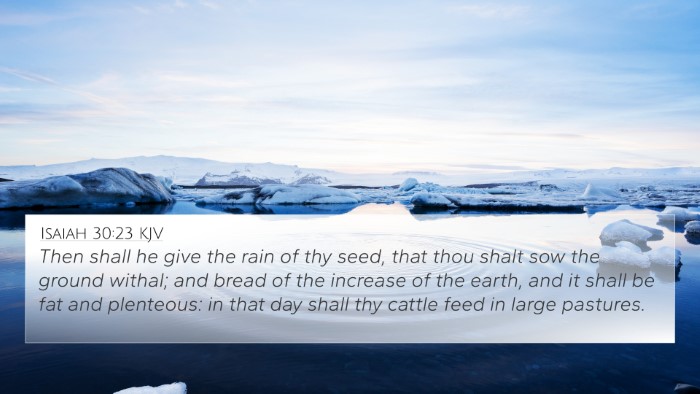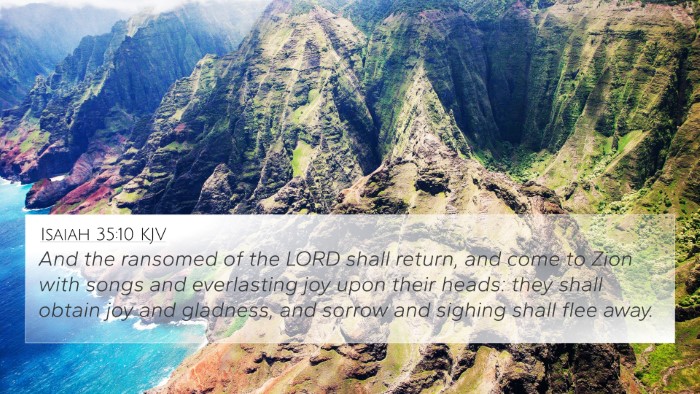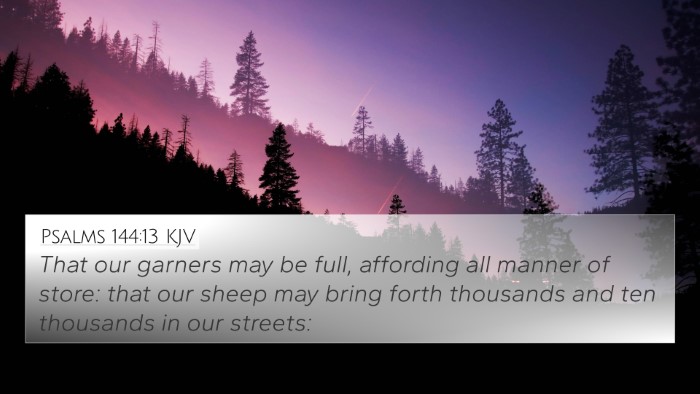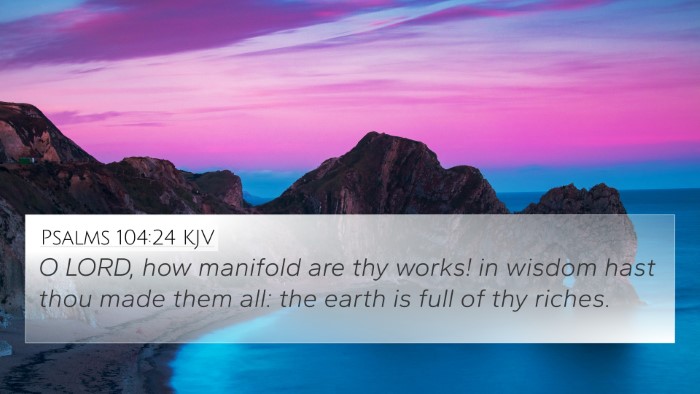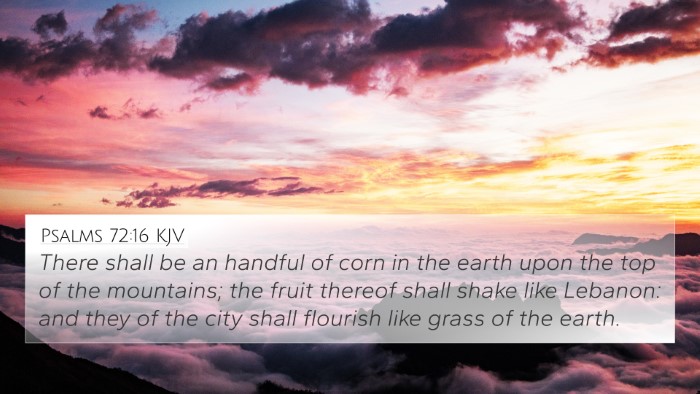Psalms 65:13 - Summary and Interpretation
Psalms 65:13 reads: “The meadows are covered with flocks and the valleys are mantled with grain; they shout for joy and sing.” This verse of Psalms presents a vivid image of the earth in its abundance and beauty, evoking a sense of joy and gratitude in the hearts of those who witness it.
Verse Meaning and Insights
The verse speaks to the theme of divine provision and the effects of God’s blessings on creation. Here, the meadows and valleys symbolize the agricultural richness that sustains life and contributes to the communal joy in the community.
Commentary Insights
- Matthew Henry: Matthew Henry highlights that the flourishing state of the meadows and valleys indicates God’s favor towards His people. The pastoral imagery reflects a time of peace and plenty, demonstrating that God enriches the lives of believers with material blessings while simultaneously encouraging spiritual joy.
- Albert Barnes: Barnes emphasizes the connection between natural abundance and communal praise. He notes that’s praise is not merely the response of humanity but that creation itself sings and rejoices in God’s goodness. The reference to flocks and grain illustrates the provision needed for survival, suggesting a covenantal relationship between God and His creation.
- Adam Clarke: Clarke suggests that the joy expressed in this verse is twofold—deriving both from material abundance and from the spiritual acknowledgement of God's bounty. The act of shouting for joy signifies a celebration of God’s providence that strengthens community bonds and highlights the interconnectedness of mankind and nature.
Connections and Cross-References
This verse can be cross-referenced with various other scriptures, providing deeper insights into its meaning and theological implications:
- Psalm 104:14-15: “He makes grass grow for the cattle, and plants for people to cultivate—bringing forth food from the earth.” This connects to the portrayal of God as the provider of sustenance.
- Isaiah 55:10-11: “As the rain and the snow come down from heaven... so is my word that goes out from my mouth.” This emphasizes God’s provision and the resultant joy in creation.
- Jeremiah 31:12: “They will be like a well-watered garden, and they will sorrow no more.” This echoes the themes of abundance and joy found in Psalms 65:13.
- Matthew 6:26: “Look at the birds of the air; they do not sow or reap... yet your heavenly Father feeds them.” This New Testament reference ties into the theme of God’s care for His creation.
- Philippians 4:19: “And my God will meet all your needs according to the riches of his glory in Christ Jesus.” This reinforces the message of divine provision.
- James 1:17: “Every good and perfect gift is from above.” This highlights the source of blessings, enhancing the message of gratitude.
- Psalm 147:8: “He covers the sky with clouds; he supplies the earth with rain and makes grass grow on the hills.” This illustrates God’s providence over nature.
- Psalms 1:3: “That person is like a tree planted by streams of water... whatever they do prospers.” This connects the blessings with divine favor and reduction of spiritual drought.
- Ecclesiastes 3:13: “That each of them may eat and drink, and find satisfaction in all their toil—this is the gift of God.” This reinforces the theme of enjoyment found in divine providence.
Thematic Bible Verse Connections
Psalms 65:13 forms part of a larger narrative regarding God's nature as a provider and the resultant joy when communities live in harmony with His blessings. Exploring the thematic connections to other biblical texts amplifies our understanding of how interconnected the messages of the Bible truly are.
Conclusion
In conclusion, this verse serves as a reminder of the beauty of creation and the joy that comes from recognizing God's provision. By cross-referencing it with other scripture, believers can enhance their understanding of God's attributes and the manifestation of His blessings in their lives. This comparative Bible verse analysis not only enriches personal faith but serves as a tool for deeper scriptural study and inter-Biblical dialogue.
